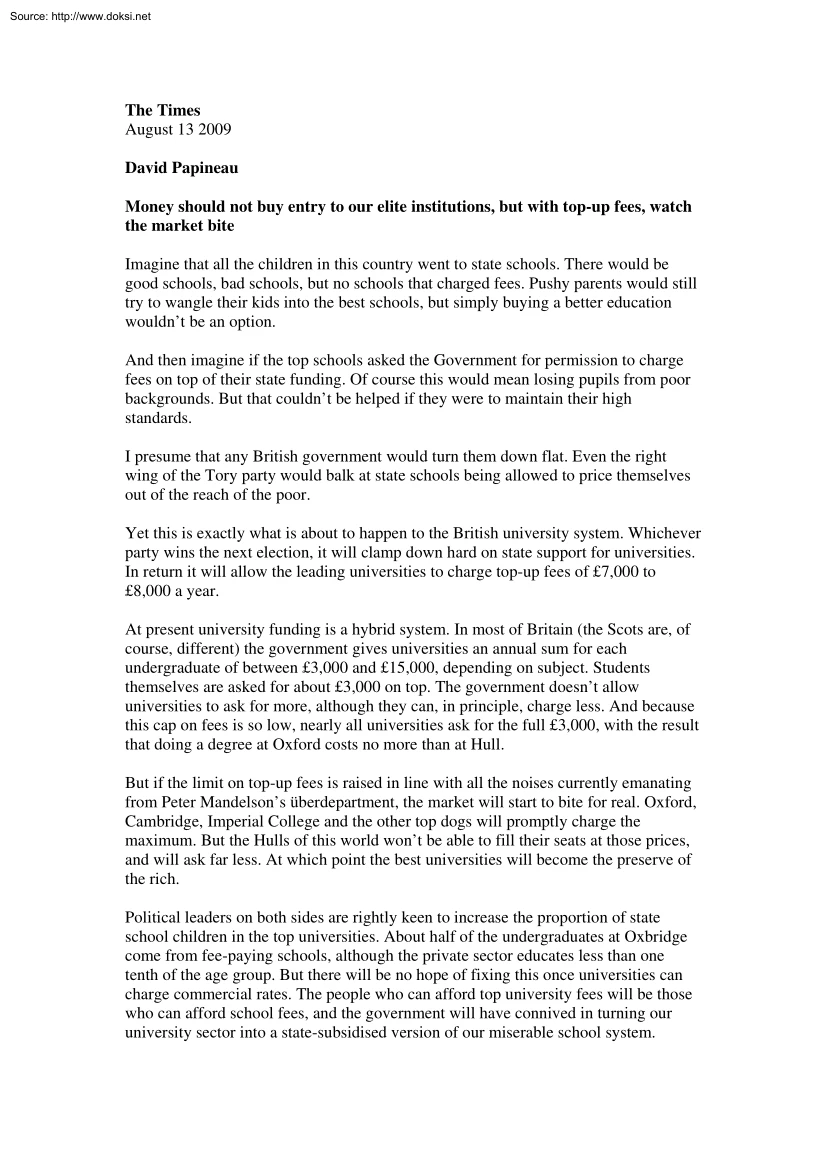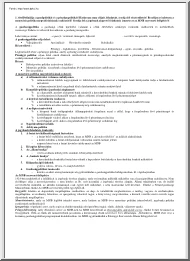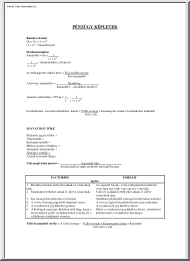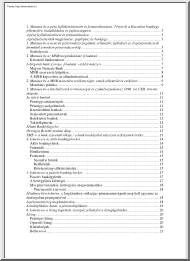Datasheet
Year, pagecount:2009, 2 page(s)
Language:English
Downloads:2
Uploaded:October 05, 2020
Size:458 KB
Institution:
-
Comments:
Attachment:-
Download in PDF:Please log in!
Comments
No comments yet. You can be the first!Most popular documents in this category
Content extract
Source: http://www.doksinet The Times August 13 2009 David Papineau Money should not buy entry to our elite institutions, but with top-up fees, watch the market bite Imagine that all the children in this country went to state schools. There would be good schools, bad schools, but no schools that charged fees. Pushy parents would still try to wangle their kids into the best schools, but simply buying a better education wouldn’t be an option. And then imagine if the top schools asked the Government for permission to charge fees on top of their state funding. Of course this would mean losing pupils from poor backgrounds. But that couldn’t be helped if they were to maintain their high standards. I presume that any British government would turn them down flat. Even the right wing of the Tory party would balk at state schools being allowed to price themselves out of the reach of the poor. Yet this is exactly what is about to happen to the British university system. Whichever party wins
the next election, it will clamp down hard on state support for universities. In return it will allow the leading universities to charge top-up fees of £7,000 to £8,000 a year. At present university funding is a hybrid system. In most of Britain (the Scots are, of course, different) the government gives universities an annual sum for each undergraduate of between £3,000 and £15,000, depending on subject. Students themselves are asked for about £3,000 on top. The government doesn’t allow universities to ask for more, although they can, in principle, charge less. And because this cap on fees is so low, nearly all universities ask for the full £3,000, with the result that doing a degree at Oxford costs no more than at Hull. But if the limit on top-up fees is raised in line with all the noises currently emanating from Peter Mandelson’s überdepartment, the market will start to bite for real. Oxford, Cambridge, Imperial College and the other top dogs will promptly charge the
maximum. But the Hulls of this world won’t be able to fill their seats at those prices, and will ask far less. At which point the best universities will become the preserve of the rich. Political leaders on both sides are rightly keen to increase the proportion of state school children in the top universities. About half of the undergraduates at Oxbridge come from fee-paying schools, although the private sector educates less than one tenth of the age group. But there will be no hope of fixing this once universities can charge commercial rates. The people who can afford top university fees will be those who can afford school fees, and the government will have connived in turning our university sector into a state-subsidised version of our miserable school system. Source: http://www.doksinet No doubt there will be a system of means-tested bursaries to help families on low incomes. But this won’t solve the problem, any more that Margaret Thatcher’s misbegotten assisted places
scheme turned the public schools into havens of social equality. A bursary scheme will assist the few children from very poor families who fight their way to a top university. But in a country where most households manage on less than £25,000 a year after tax, there will be a lot of families above the means-test line who can’t afford the extra fees. The high-end British universities argue that their inability to charge higher fees is making them slide down the international league tables. But the facts do not bear this out. Most of these tables rank up to 20 British universities in the top 100 worldwide, and about 4 in the top 10. Only the US does better and even it is behind on a per capita basis. Britain is streets ahead of its European competitors Any country in the world would give its right arm to have universities like ours. Indeed there is good evidence that universities that rely on fees from rich parents are rarely academic heavy-hitters. There are plenty of “rich kids’
colleges” in the US, and some are academically substantial. But the vast majority of leading US universities are not like this. They are either hugely endowed, such as Harvard and Yale, so able to admit students without even asking if they can pay. Or they are highly subsidised state institutions, such as the Universities of Michigan and Texas, where local pride ensures that residents receive a fine education at nominal rates. Neither of these options is on the cards in Britain. The kind of money commanded by Harvard and Yale lies far beyond the dreams of British university bursars. And you only have to imagine asking Hull’s taxpayers to fund its university to see the problem. Which leaves only one alternative. Once the cap comes off top-up fees, our proudest universities will quickly turn into rich kids’ colleges, and academic excellence is more likely to suffer than gain. We all know that public money will be tight over the next decade. But the government must find some
alternative to free-market university fees. It is no accident that admission to one of our world-leading universities is one of the few things in modern Britain that money can’t buy. Once it is restricted to those children lucky enough to have rich parents we really will start to slide down the international scale. David Papineau is Professor of Philosophy at King’s College London
the next election, it will clamp down hard on state support for universities. In return it will allow the leading universities to charge top-up fees of £7,000 to £8,000 a year. At present university funding is a hybrid system. In most of Britain (the Scots are, of course, different) the government gives universities an annual sum for each undergraduate of between £3,000 and £15,000, depending on subject. Students themselves are asked for about £3,000 on top. The government doesn’t allow universities to ask for more, although they can, in principle, charge less. And because this cap on fees is so low, nearly all universities ask for the full £3,000, with the result that doing a degree at Oxford costs no more than at Hull. But if the limit on top-up fees is raised in line with all the noises currently emanating from Peter Mandelson’s überdepartment, the market will start to bite for real. Oxford, Cambridge, Imperial College and the other top dogs will promptly charge the
maximum. But the Hulls of this world won’t be able to fill their seats at those prices, and will ask far less. At which point the best universities will become the preserve of the rich. Political leaders on both sides are rightly keen to increase the proportion of state school children in the top universities. About half of the undergraduates at Oxbridge come from fee-paying schools, although the private sector educates less than one tenth of the age group. But there will be no hope of fixing this once universities can charge commercial rates. The people who can afford top university fees will be those who can afford school fees, and the government will have connived in turning our university sector into a state-subsidised version of our miserable school system. Source: http://www.doksinet No doubt there will be a system of means-tested bursaries to help families on low incomes. But this won’t solve the problem, any more that Margaret Thatcher’s misbegotten assisted places
scheme turned the public schools into havens of social equality. A bursary scheme will assist the few children from very poor families who fight their way to a top university. But in a country where most households manage on less than £25,000 a year after tax, there will be a lot of families above the means-test line who can’t afford the extra fees. The high-end British universities argue that their inability to charge higher fees is making them slide down the international league tables. But the facts do not bear this out. Most of these tables rank up to 20 British universities in the top 100 worldwide, and about 4 in the top 10. Only the US does better and even it is behind on a per capita basis. Britain is streets ahead of its European competitors Any country in the world would give its right arm to have universities like ours. Indeed there is good evidence that universities that rely on fees from rich parents are rarely academic heavy-hitters. There are plenty of “rich kids’
colleges” in the US, and some are academically substantial. But the vast majority of leading US universities are not like this. They are either hugely endowed, such as Harvard and Yale, so able to admit students without even asking if they can pay. Or they are highly subsidised state institutions, such as the Universities of Michigan and Texas, where local pride ensures that residents receive a fine education at nominal rates. Neither of these options is on the cards in Britain. The kind of money commanded by Harvard and Yale lies far beyond the dreams of British university bursars. And you only have to imagine asking Hull’s taxpayers to fund its university to see the problem. Which leaves only one alternative. Once the cap comes off top-up fees, our proudest universities will quickly turn into rich kids’ colleges, and academic excellence is more likely to suffer than gain. We all know that public money will be tight over the next decade. But the government must find some
alternative to free-market university fees. It is no accident that admission to one of our world-leading universities is one of the few things in modern Britain that money can’t buy. Once it is restricted to those children lucky enough to have rich parents we really will start to slide down the international scale. David Papineau is Professor of Philosophy at King’s College London





 When reading, most of us just let a story wash over us, getting lost in the world of the book rather than paying attention to the individual elements of the plot or writing. However, in English class, our teachers ask us to look at the mechanics of the writing.
When reading, most of us just let a story wash over us, getting lost in the world of the book rather than paying attention to the individual elements of the plot or writing. However, in English class, our teachers ask us to look at the mechanics of the writing.